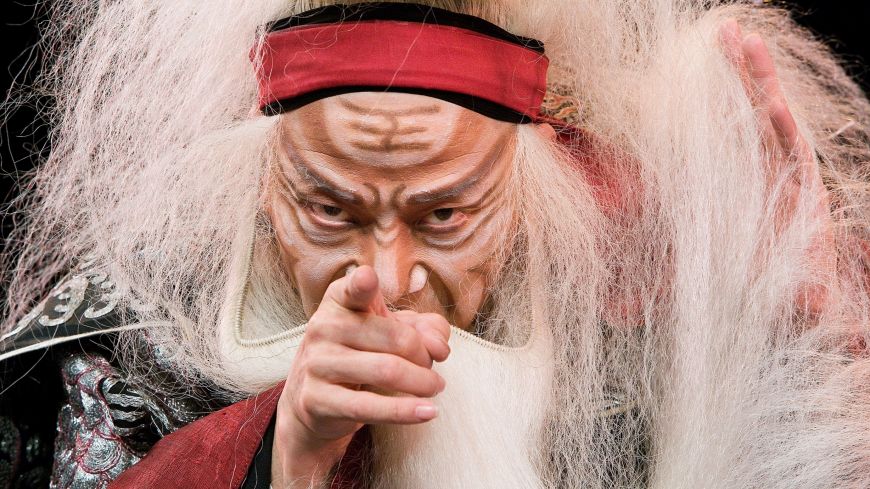
Chinese traditional opera and King Lear may seem to some a strange juxtaposition, yet this production surprisingly takes us closer to the roots of Shakespearean theatre than might be supposed. Wu Hsing-kuo’s interpretations of Lear, the Fool, Gloucester and other characters draw strongly on the characters from Chinese traditional opera, which themselves have an equivalent in the western tradition of Comedia del Arte.
Wu Hsing-kuo is a remarkable actor, working within a tradition but expanding its previous boundaries enormously. His acrobatic and interpretational skills combine here to provide some of the most outstanding "two hours traffic" seen on any stage. For this is more than a re-telling of the King Lear plot in an unconventional (if it can be so mis-described) form. Wu meditates on the role of actor as interpreter and active creator as well as offering his own penetrating perspective on the most ambitious of Shakespeare's plays.
A few years ago this reviewer was fortunate enough to see the late, wonderfully eclectic Ken Campbell's 'The School of Night', in which actors and audience members came up close and sometimes uncomfortable with the creation of iambic pentameter for 'stock' characters and situations. An education, essentially, in how Shakespeare's actors worked and contributed to the final 'script'. This has relevance here as Chinese traditional opera also has its share of stock figures and it's on this common tradition of improvisation that Wu draws, while taking it beyond and opening it to a wider audience through use of major texts of the western canon.
By doing so, Wu frees our understanding of King Lear from the strait jacket imposed by nineteenth and twentieth century preconceptions, against which even actors as distinguished as Laurence Olivier, John Gielgud, Pete Postlethwaite and most recently Derek Jacobi have struggled.
Wu’s performance becomes not only significant in its own right, but a necessary corrective to a mono-cultural view mired in recent history.
Although Wu is the only actor on stage, this is a production driven almost as much by music as the actor. The music of Chinese traditional opera or Jingju uses melodic families as the basis for appropriate tunes – a technique familiar to those with a working knowledge of Scots traditional music, where phrases allow players to slide easily from one tune to another with virtually no rhythmic break. The musicians here wove a skilful soundscape throughout the production, prompting but never dominating the interaction of performer and audience.
The set design subtly created opportunities for Wu’s acrobatic skills to shine while suggesting moor, seashore and palace in most discreet ways. The stage, however, was always rightly dominated by Wu Hsing-kuo, an actor who is a most remarkable interpreter of differing traditions, which his performance managed to encompass with insight, skill and physical agility.
Dates: 13-16 August, 20:00
Ticket Prices: £10 - £30

